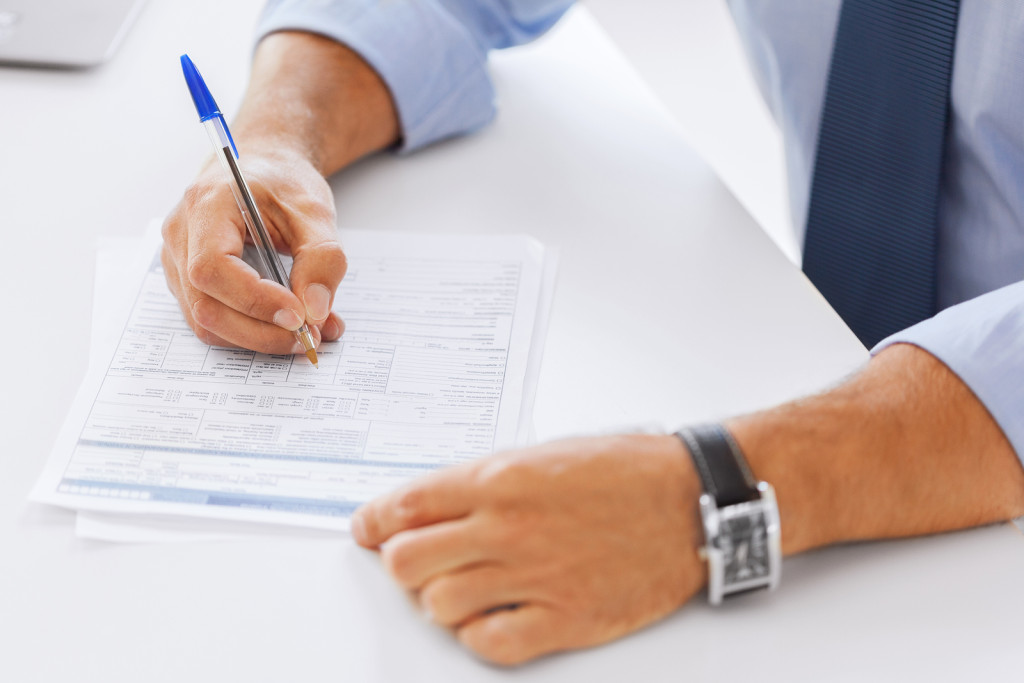When a taxpayer receives a written letter regarding undisclosed offshore account, the taxpayer knows that he or she is likely to face civil and potentially criminal tax consequences. Thus, receiving a letter from the IRS about undisclosed accounts is almost certainly bad news, but what about when a taxpayer suspects that he or she may have failed to satisfy some level of offshore disclosure requirements? Well, the first cost in a situation like this is almost certainly the fear and anxiety that the taxpayer will experience. The taxpayer may wonder what his or her total tax exposure may be. Others may find themselves preoccupied by fears of a federal prison sentence and a reputation in tatters.
However, simply worrying about a potential tax issue is neither healthy nor productive. In short, worry alone will not fix your offshore tax concerns. Rather, taxpayers should contact an experienced tax attorney as soon as possible. Working with a tax attorney, such as Robert Hoffman, can help you resolve your offshore account situation with the UIRS more favorably than you would likely be able to accomplish working alone.

When Must FBAR or FATCA Disclosures be Filed?
In general, the obligation to file both FBAR and FATCA exists for U.S. taxpayers living within the United States or throughout the world provided that they hold certain account types with assets exceeding certain reporting thresholds. For Report of Foreign Bank Accounts (FBAR), a duty to disclose an offshore account arises when the balance or aggregate balance of the foreign financial account or accounts exceeds $10,000. FBAR must be filed by June 30th for the previous tax year.
Foreign Account Tax Compliance Act (FATCA) covers a broad array of foreign accounts, foreign interests, and foreign insurance policies. For FATCA, the filing thresholds are less cut and dry because they vary depending on the taxpayer’s filing status and whether he or she lived in the United States or abroad for the tax year. In general, married taxpayers living outside of the United States and filing jointly will have the most permissive filing threshold. By contrast, a single taxpayer who live in the United States is subject to the lowest and most restrictive filing threshold.
Should I Wait to Speak to a Tax Attorney about my Foreign Accounts?
No, if you suspect that you have undisclosed foreign accounts that should have been reported to the government time is of the essences. This is because the IRS has established programs that can reduce a non-compliant taxpayer’s liability and provide some protection against a criminal tax investigations. However, to avail oneself of one of the versions of the Offshore Voluntary Disclosure Program (OVDP), one must make a voluntary disclosure. If you wait until the IRS discovers your mistake, the disclosure would not be truly voluntary. Furthermore, other additional consequences can occur.

The IRS can Make OVDP Less Favorable to the Taxpayer
OVDP was established to help taxpayers transition from secret banking systems in in both traditional and non-traditional tax havens to a system when transparency and financial disclosures are absolutely necessary to avoid penalties and tax consequences. However as taxpayers adjust, or should adjust to the new banking regime, the IRS and US government are likely to make the terms of the program less favorable. In fact, past modifications to the program have already resulted n taxpayers facing more serious consequences than they would have at OVDP’s inception, but less so than they are likely to face in a traditional tax prosecution. For instance, as part of the 2014 OVDP amendments, the offshore penalty that must be paid by some taxpayers holding accounts in foreign financial institutions doubled from 27.5 percent to 50 percent. Furthermore, rather than submitting the offshore penalty later in the process, taxpayers are now required to pay the full offshore penalty at the time of application for OVDP. Finally, taxpayers should consult with a tax professional before applying for this type of tax relief because an incomplete or improper disclosure can make the situation worse.
The Hoffman Law Offices offers aggressive and strategic representation for taxpayers facing difficult tax issues related to undisclosed offshore accounts. To schedule a free and confidential initial offshore tax consultation, contact us at 800-897-3915 or contact us online today.


